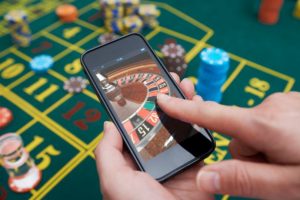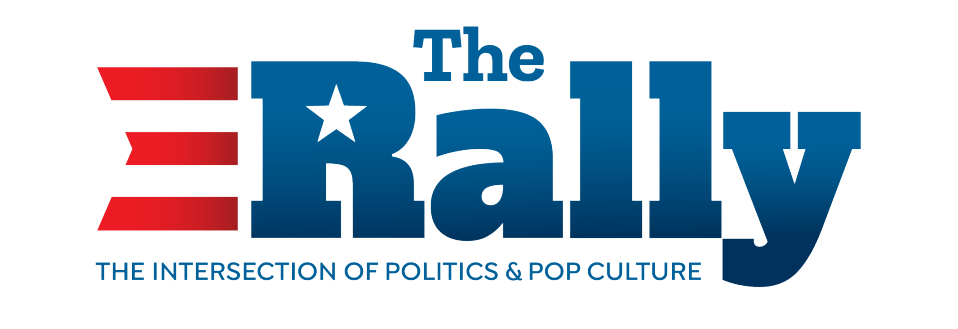Is an epidemic of state-supported gambling addiction in the cards? Probably. Changes in the law, ubiquitous mobile devices, and advances persuasive technologies have created a disruptive convergence. In May 2018 the U.S. Supreme Court allowed states to legalize sports betting. So far 16 states and the District of Columbia have allowed mobile betting apps, expecting a windfall of free money.
Gambling and drug addicts both tend to engage in impulsive acts of reward-seeking. Drug addicts require increasingly stronger hits to get high. So compulsive gamblers make bigger and wilder bets to avoid withdrawal symptoms.
The five US states with the most gaming machines per capita are Nevada, Oklahoma, South Dakota, Montana, and Mississippi, according to a 2019 report by WalletHub.com. Nevada, Oklahoma, South Dakota, Montana, and Mississippi are also the most gambling-addicted US states. WalletHub’s ranking of all 50 states shows a direct correlation between access to gambling and problem gambling.

It’s a good bet that, in this case, correlation does equal causation. More convenient wagering options mean more gambling addicts. Going into a casino, playing slots in a bar, or buying a lottery ticket is not terribly inconvenient, yet requires at least some time and effort. Tapping your bet into a smartphone is as fast and easy as sending a text. Mobile sports betting apps are ready to take your action 24/7/365. Barriers between having an impulse and placing your wager are nearly non-existent.
Experts say the faster a drug hits the brain the more likely it is to result in addiction. Think smoking crack vs. snorting powdered cocaine. When the drug of choice is gambling, a trip to a casino, or stopping at a bodega for a lottery ticket takes at least a few minutes. Legal betting via your mobile device takes no time and little effort.
Addiction is a term too often tossed around in a casual manner. “I’m addicted to watching the news,” a co-worker might say. Yet having a habit or experiencing strong desires is not the same as addiction. Addiction is a disease, which changes brain chemistry as a result of the use, or overuse of a substance, thing, or activity. Addiction is a psychological and physical inability to control one’s use of a substance, or activity, even knowing it will harm your health, relationships, lifestyle, etc. Addicts develop a tolerance to the addictive agent requiring greater, more frequent use to get the same high. Eventually, they need more and more just to avoid withdrawal symptoms even though they no longer get enjoyment from it.
Drugs, tobacco, and sex have often led to harmful addictions, impacting health, relationships, jobs, and other parts of normal life. But these were not intentionally engineered to cause or exacerbate addiction. With mobile gambling apps, addiction isn’t a side effect, a flaw, or a “bug.” It’s a feature intentionally engineered into gambling apps and websites. Next-Gen bookies spend more on retaining players than signing up new ones. User experience (UX) is social, interactive, and personalized for maximum customer engagement and retention.

Persuasive technologies are scientifically engineered into video games, social media, etc. making them more habit-forming. For example “compulsion loops” reward users/players for behavior an app’s designer designates. The rewards can be likes, tokens, new game levels wins, or near wins. All provides the user’s brain with a hit of dopamine. In a business model, long used by drug pushers, game developers, and other online dopamine dealers, give a user/player a free “taste” via a free app. Performing the desired behavior results in dopamine generating feedback. The feedback loop creates a desire for more rewards, resulting in a compulsive response.
Exposure to wagering opportunities triggers gambling behavior. Online sports betting facilitate easier, faster, betting with less opportunity to consider the odds of winning and the cost of living. Sports fans are more likely to make impulsive bets if an offer pops up during a live game.
Political officeholders love to spend but hate to pay. Cutting ribbons at openings, handing big checks to schools, and welcoming new employers, that’s the fun part. Paying for these? Not so much. Raising taxes to pay for expenditures, even popular ones, is always a political liability. With one exception, “sin taxes.” Sin taxes equal free money! Who could be against taxing sin? Sin is bad, so taxing it must be good. No need to force people to pay a sin tax, they’ll volunteer. They may complain about the cost of cigarettes or a six-pack, but they’ll pay it again and again.

States don’t just sit back and collect taxes, according to New York State Comptroller Tom DiNapoli’s office, his state spent “$270 million to encourage “participation” in gambling. But just $5.7 million towards mitigating gambling-related problems. “If the state is spending money to encourage people to gamble more, and more people are falling into this trap, you know, that’s where we get to that question of striking a balance,” said DiNapoli.
The bad news is there is no such thing as free money. Gamblers will squander their wages, blow their retirement savings, max out their credit cards, borrow from friends and family, declare bankruptcy and commit crimes ranging from armed robbery to embezzlement to suicide. Gambling addiction places additional demands on the criminal justice system, public health resources, social services, and families. Burdens that must be paid by taxpayers or left unmet. As the number of problem gamblers grows money for treatment programs must be provided. Who should pay? The gaming industry. Who will pay? Taxpayers.
The gambling industry promotes wagering as entertainment, like seeing a movie. However, up to eight percent of gamblers develop some level of addiction using traditional gambling venues. Pew Research found 31% of adults report being online “almost constantly.” Online sportsbooks work hard and spend big to engage, delight, and retain customers. They’re already very good and getting better at using “persuasive technologies.” Gambling addiction, times Internet addiction, times persuasive tech equals a looming gambling crisis.

Helplines and treatment programs help problem gamblers recover. Preventing gambling would be better. Common sense measures to reduce the most harmful impacts include-
- Banning or limiting advertising during games.
- Outlaw gambling via credit cards.
- Limit a player’s bets per day.
- Ban in-game, impulsive wagers.
- “Geo-fence” gambling apps around sporting events, especially college sports.
- Create a national, voluntary, Self-Exclusion Program for problem gamblers to ban themselves, across all platforms.
Addiction feels wonderful because it is an easy, if short-term, fix for big problems. But addiction always takes more than it gives. Gambling is all fun and gaming until an addiction shows up and the bills are past due.


